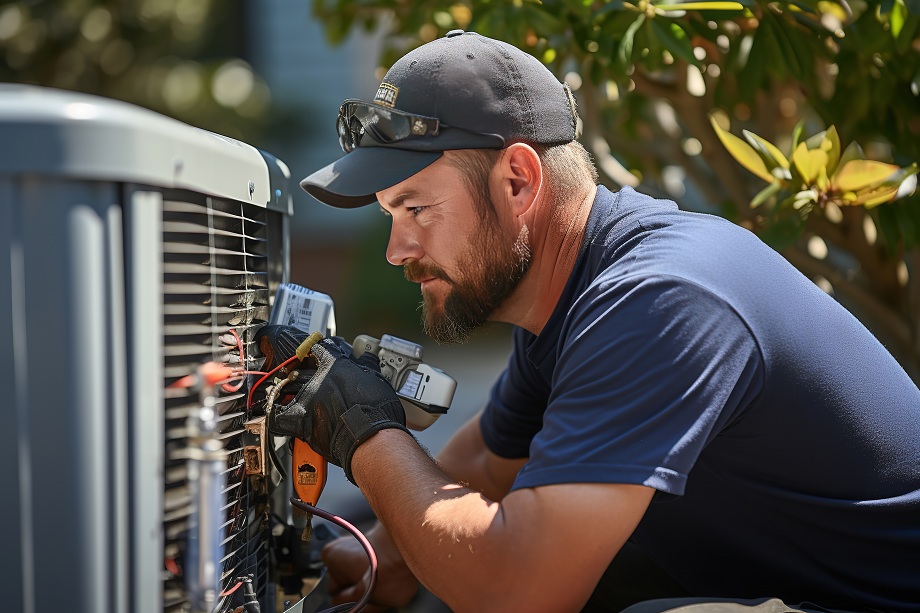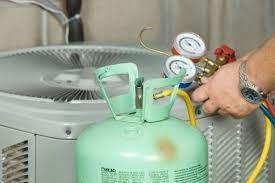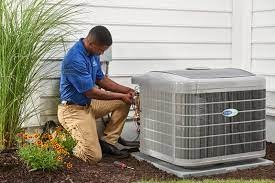
A properly-functioning air conditioning system is worth its weight in gold in the hot, summer months. Unfortunately, this is the time of year when an AC system typically breaks down and needs repair. We can all thank our air conditioning technician who rescues us from our dilemma. Contact our Air Conditioning School today for more information.
New and efficient HVAC systems are made to last 10-20 years with regular maintenance. We run into issues in these inflationary times when we neglect servicing them or fail to replace them when it is time because we lack funds. The good news is that AC technicians possess the skills needed to solve our problems.
Malfunctioning Capacitors, Circuit Breakers, and Fuses
Some of the malfunctions repair persons encounter are bad capacitors, breakers, and fuses. They are easy to troubleshoot, repair, or replace. Capacitors are found in the outside unit called a condenser and start and keep the electric motor running. They provide a boost of energy when starting to get the motor up to speed. Over the years, capacitors weaken and fail, and when this happens, they must be replaced. Failure to replace them may cause other AC issues.
Diagnosing and replacing breakers and fuses are the fast and easy parts of a technician’s job. When the power goes off in part of the house, the first things to check are circuit breakers and fuses. Breakers protect homes and devices from overloading and short-circuiting by shutting off power to them when an overload is detected. Fuses also protect homes and devices by melting down when overheated and cannot be reused.
Low Refrigerant, Clogged Filter, Or Thermostat
 When your air conditioner is running but does not cool the house much, your outside unit could be low on refrigerant. The furnace filter may be clogged up, or the thermostat may be malfunctioning. Refrigerants transfer heat to make your system cool the house, and when it is too low your AC struggles to keep up. If more is not added, the unit may freeze and fail to cool a house.
When your air conditioner is running but does not cool the house much, your outside unit could be low on refrigerant. The furnace filter may be clogged up, or the thermostat may be malfunctioning. Refrigerants transfer heat to make your system cool the house, and when it is too low your AC struggles to keep up. If more is not added, the unit may freeze and fail to cool a house.
Low refrigerant is generally caused by a slow leak and results in the AC running too long to do its job. The thermostat temperature setting becomes harder and harder to achieve. Adding more of the right type of refrigerant usually solves the problem unless the evaporator coil is bad.
Two other potential problems are a clogged furnace filter and a malfunctioning thermostat that decreases the AC’s ability to cool a house. Homeowners tend to neglect changing filters regularly and don’t know how to diagnose the thermostat. Although they can change the filters, they need a technician to work on the thermostat.
| “We can all thank our air conditioning technician who rescues us from our dilemma.” |
Clogged Condensate Drain Line
Your air conditioner not only cools your home, it dehumidifies the air in it at the same time. The moisture is caught and goes into a drain line to move it outside the house. Most of the time, a drain hole is placed in the concrete floor near the furnace and AC components. Over time, the drain line can become clogged with algae and debris causing it to fail to drain properly.
A clogged drain line can cause water to back up inside the unit and fill up a secondary drain pan. Fortunately, there is a safety switch to cut off the unit to stop water damage. If the excess condensed water is not removed, the blower and thermostat will turn off the condensing unit.
Homeowners may be skilled enough to solve this problem, but they typically need a pro to correct it.
Malfunctioning Blower Motor
A blower motor located inside the furnace housing acts like a fan to move air inside the ductwork and home. You should understand these things about them:
- Blower motors are often overlooked by homeowners or technicians
- Their bearings need lubricating as needed and kept clean
- Older motors have capacitors that wear and place stress on motors
- An electrical smell often indicates a blower motor issue
- A rotating banging or grinding sound may also be a motor issue
- Turn off the system if you detect an issue to prevent damage or fire
Bad Condenser Fan Motor Or Compressor Motor
 Our last areas to discuss that technicians learn to repair in HVAC school are the condenser fan motor and compressor motor. Both of these parts are found in the condensing unit in your yard. If you detect any of these issues, there could be a problem with one or both parts:
Our last areas to discuss that technicians learn to repair in HVAC school are the condenser fan motor and compressor motor. Both of these parts are found in the condensing unit in your yard. If you detect any of these issues, there could be a problem with one or both parts:
- You don’t hear both of them running
- A screeching sound is present
- A grinding sound is present
These parts typically malfunction because either they are shorted to ground, wiring is breaking or coming loose, or you have bad bearings or valves.
Graduates who hold an Associate of Occupational Studies (AOS) Degree in Air Conditioning, Refrigeration, and Electrical Technology are prepared to correct any of the issues covered in this blog. If you want to be part of the exciting world of HVAC, contact our admissions office now.
For more information about graduation rates, the median debt of students who completed the program, and other important information, please visit our website: https://iticollege.edu/disclosures/




